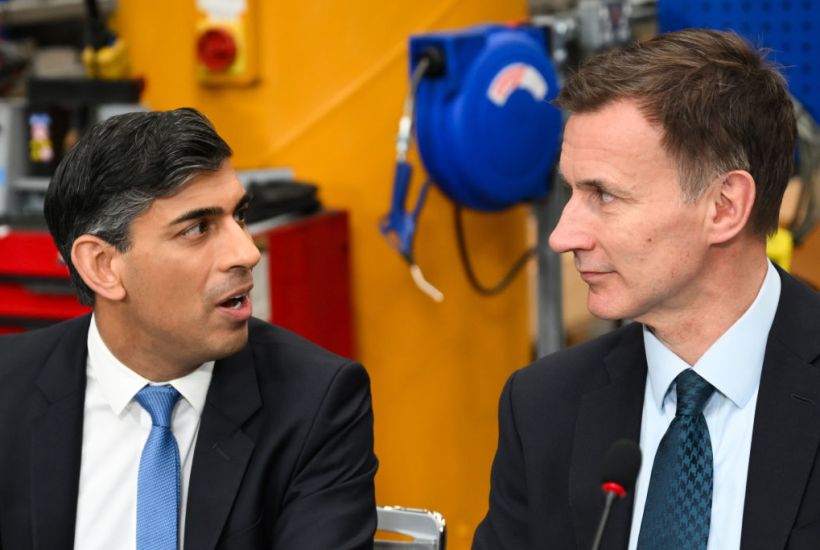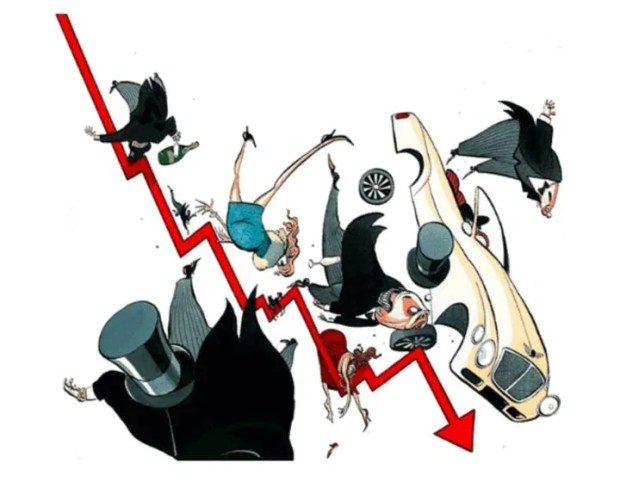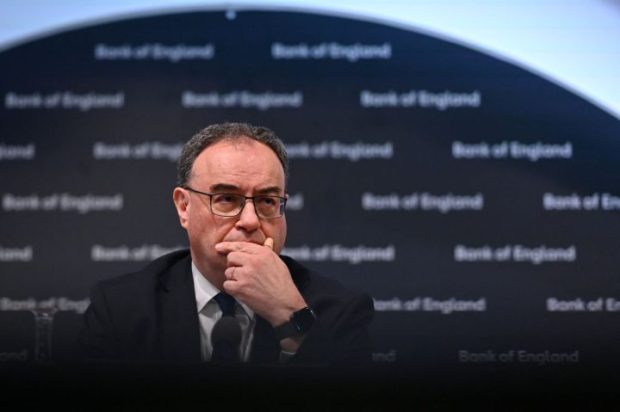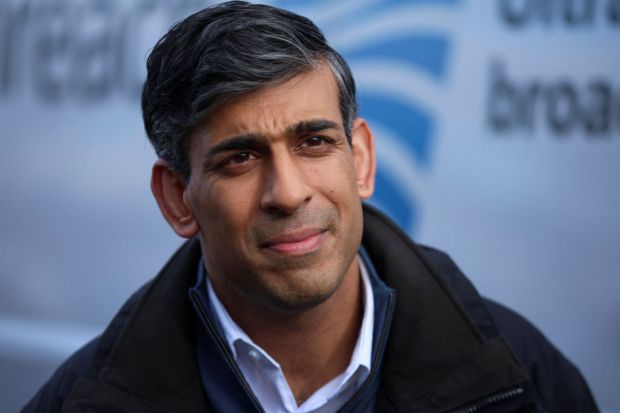February was a tough month for Jeremy Hunt, as he tried to roll back the tax cut promises that were made by himself and Rishi Sunak in January. The money simply did not materalise, despite the government borrowing less than expected in recent months. The rough £15 billion that independent forecasts now think the Chancellor has for additional announcements is not enough to deliver the major income tax cuts Hunt wanted to announce.
The disappointment is palpable. Appearing on BBC One this morning, Hunt squashed all remaining hopes that this Wednesday might be the tax-slashing Budget Tory MPs were desperate to deliver ahead of an election.
‘The most unconservative thing I could do,’ he told Laura Kuensburg, ‘is to cut taxes by increasing borrowing, because that’s just cutting taxes and saying future generations have to pick up the (price) tag. So, I won’t do that. But I do want, where it’s possible to do so responsibly, to move towards a lower tax economy, and I hope to show a path in that direction.’
This is the kind of narrative Hunt was pushing when Rishi Sunak first entered No. 10: an emphasis on fiscal prudence and the long-term, to deliver tax cuts down the road. His argument this morning – ‘this will be a prudent and responsible Budget for long-term growth: tackling inflation, more investment, more jobs, and that path to lower taxation, as and when we can afford it’ – could easily be mistaken for something said back in autumn 2022, when Hunt was cleaning up the mess of Liz Truss.
This is the kind of narrative Hunt was pushing when Rishi Sunak first entered No. 10
The obvious problem is that the economic environment, and indeed the country, has moved on from those chaotic days. Sunak and Hunt have had close to 18 months in their respective roles now, and managed to push off demands for tax cuts for most of that time, since they promised difficult decisions in the short-term would make tax cuts possible again. Those tough choices – to keep the freeze on tax thresholds, to push forward with corporation tax hikes – were supposed to improve the public finances enough that come the election year, a bigger, bolder offer to the public could be offered up: not just one-off tax cuts, but a new vision for a smaller state.
This was moving in the right direction last autumn, when Hunt announced billions of pounds of business tax cuts to encourage more investment and to give employees some relief with their National Insurance contributions. But that Autumn Statement was billed as the start of a new era in the Treasury – one that would lead to the tax burden finally starting to fall this year. This is what Hunt is trying to play down. Whatever tax cuts we get this week are likely to be smaller than what was offered up last November.
Can the Tories realistically go into an with such a high tax burden? As I say in the Daily Telegraph this weekend, it seems increasingly likely that we could get another fiscal event later this year.
It’s possible the Tories simply accept defeat on the tax burden for now, and try to use an election manifesto to show the public what might change in the next parliament. But after 14 years already in power, this is unlikely to be a tactic that voters – or indeed Tory MPs – accept. If the government can’t deliver an income tax cut, for example, after spending more than a year trying to tackle inflation and getting the finances in order, asking for a whole additional parliament to deliver this is unlikely to work.
But the economic indicators point in the direction of a better spring and summer, which could give Hunt more scope to deliver the kinds of tax cuts he was so recently promising. Chances are we are already out of the mild recession the UK went into last year. Growth should start picking up (albeit ever so slightly) at a time when the Bank of England may finally feel comfortable enough to start slow and steady interest rate cuts, as the headline inflation rate returns to target this spring.
With the Office for Budget Responsibility’s forecasts constantly overshoot borrowing costs and debt interest payment costs these days, it seems increasingly likely that Hunt could find himself with additional room for tax cuts, that still keep him on the right side of his fiscal rules (that debt as a percentage of GDP is falling in the medium term). What a missed opportunity it would be, then, not to deliver them. Even if it doesn’t give the Conservatives as much time as they’d like between tax cuts and an election for workers to feel the income difference, it seems a much better option than not delivering on any kind of hefty tax cut at all.
But if Hunt has to wait a while longer to deliver on his own agenda, what might he do in the meantime? Speaking on Kuenssberg’s show this morning, Hunt refused to speak on the rumour that he might take Labour’s plan to abolish non-domiciled tax status – something the Chancellor spoke out against as recently as 2022. ‘I’m not going to talk about individual taxes’ Hunt insisted, only willing to say that ‘the country sees through gimmicks and we’re not going to do gimmicks on Wednesday.’ The question, then, is whether Hunt has changed his mind about what constitutes a gimmick policy.
The exchange was a reminder that the pre-Budget interview is always a frustrating one. The Chancellor has an easy way to pivot out of important questions, by simply insisting that he won’t discuss market-sensitive details ahead of a Budget.
Got something to add? Join the discussion and comment below.
Get 10 issues for just $10
Subscribe to The Spectator Australia today for the next 10 magazine issues, plus full online access, for just $10.




















Comments
Don't miss out
Join the conversation with other Spectator Australia readers. Subscribe to leave a comment.
SUBSCRIBEAlready a subscriber? Log in